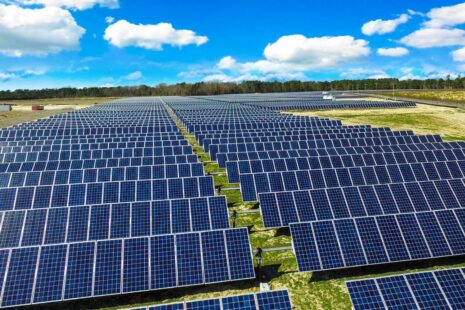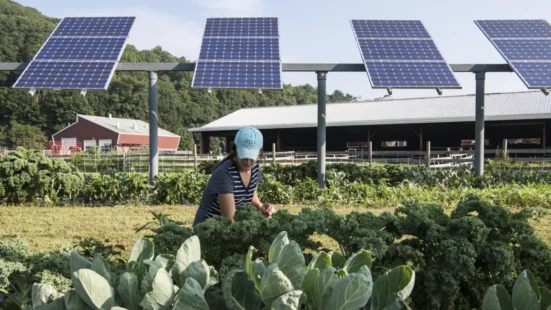
As the number of solar farms in Australia grows, so does the controversy over heavy metals in solar panels and the difficulty of recycling them. Lynette LaBlack, a farmer in the Riverina region of southern New South Wales, has been questioning everyone who will listen with uncomfortable questions. She questioned Metka EGN regarding its solar project in Wagga Wagga, “Please supply a thorough inventory of all molecular inert ingredients elements in your company’s solar panels.” She further added, “Can you tell me what the toxicity rating is?” Ms LaBlack is enraged that the federal government, the NSW Department of Primary Industry, and the NSW Independent Planning Commission have all failed to respond to her concerns.
She believes they’ve all purposefully ignored, assessed, or researched the clear heavy-metal leaching risk that large-scale PV Solar poses in the midst of productive food resource land. Her barrage of questions for each company is unending, as is the number of large-scale solar projects in the works around Australia, which now number in the hundreds.
ARE SOLAR PANELS HARMFUL?
In Victoria, the European Union, and parts of the United States, all solar panels are classified as hazardous e-waste, though California has amended this to make it easier to transport them for recycling. Victoria has forbidden them from being disposed of in landfills, preferring instead to recycle them to help Australia’s recycling sector grow. While there are worries about heavy metals and the difficulty of recycling the enormous and growing number of panels used around the world, the majority of scientists believe that solar panels are environmentally friendly if properly disposed of. The International Energy Agency investigated the risk of heavy metals leaking from solar panels to human health and found that it was below US screening limits, while water pollution levels were within WHO guidelines.
CADMIUM TELLURIDE DECLARED SAFE
First Solar, based in California, manufactures cadmium telluride (CdTe) panels. CdTe, according to Parikhit Sinha, the company’s sustainability officer, is a stable molecule that has been proven safe. “The potential benefits and safety of First Solar’s CdTe PV technology across its full life cycle have been proven by more than 50 studies from major US and international institutions,” he stated. That includes events like fires or storms that damaged modules and end-of-life recycling and disposal. The government and key players in the solar industry are hoping that by the time large numbers of panels reach the end of their life in Australia, a local company will have developed the specialised facilities needed to process all the different types of panels.

The first commercial-scale solar-powered and carbon-neutral farm in Australia could be on the horizon. However, instead of large farm fields, it’ll be placed within city buildings. Eden Towers, based in Western Australia, has announced intentions to build four 12-meter-high growth tower platforms for a precision-controlled indoor habitat where plants can thrive without soil all year. The […]
Read More →
Chris Brayley began his career as an electrician, repairing air conditioning and refrigeration. His company, Brayley Electrical, has adjusted its focus in recent years to become more focused on solar power, especially as even more consumers on farms and ranches turn away from generators as diesel prices continue to increase. Mr. Brayley claims that his […]
Read More →
As the number of solar farms in Australia grows, so does the controversy over heavy metals in solar panels and the difficulty of recycling them. Lynette LaBlack, a farmer in the Riverina region of southern New South Wales, has been questioning everyone who will listen with uncomfortable questions. She questioned Metka EGN regarding its solar […]
Read More →